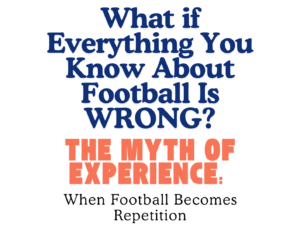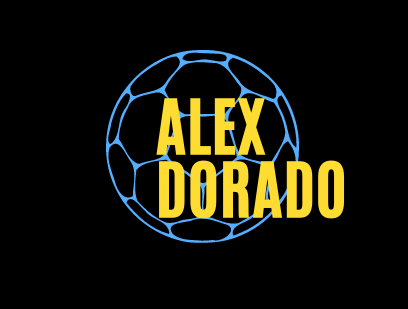
The Myth of Experience: When Football Becomes Repetition (and How to Turn It into Evolution) (Part II)
In the previous article, we talked about experience. A coach achieves success with a team and is hired by another. Upon arriving at the new club, he repeats the same behaviors, training sessions, playing ideas, strategies… Everything goes perfectly—except… at the new team, he fails to replicate the same success he had before. He gets fired.
Depending on how great the success was, he will repeat the same behaviors and ideas at another club, and so on, until he finds another place where everything clicks again (in the best-case scenario), or he gives up and stops coaching altogether (in the worst-case scenario).
The legend of the red thread says that two people are destined to be together from birth, and that this thread is tied around their pinky fingers. Well, I believe that certain coaches (their ideas and behaviors) are destined to succeed at certain clubs.
Or more accurately: “Certain ideas and behaviors (the coach) are made to succeed at specific clubs.”
As coaches, we need time to, as we said in the previous article, prepare a plan, make mistakes, and analyze those mistakes. And, as we all know, time is a scarce commodity in the world of football.
Some coaches get that time because of past success (Pep Guardiola would not still be Manchester City’s coach after so many recent defeats if he weren’t who he is), thanks to club presidents who understand the need for time (Fortaleza and their president Marcelo Paz are a great example—keeping coaches in charge even during relegation struggles, allowing them to carry out their shared long-term plan), or because of financial limitations that prevent clubs from affording dismissals.
Knowing that time is limited, what I want to reflect on with you is the previous statement:
“Certain ideas and behaviors (the coach) are made to succeed at specific clubs.”
It’s the ideas and behaviors that allow us to “fit” at certain clubs. Ideas that, for some, because of their “successful experience,” remain unchanged.
Coaching a club in Japan is not the same as coaching a club in Brazil. One thing we can all agree on is that the personal relationships with club directors, the press, players… are completely different between the two.
But it’s not just the relationships—training exercises, or better said, the needs each group has, also vary.
A few years ago, I had the pleasure of coaching in Brazil. I was a coach at Real Madrid and we were touring several countries.
In Brazil, I found a group of boys eager to learn and improve. Everything we typically suggested, the players were willing to try and put into action—but something was different. When I proposed closed tasks with “ideal” executions, these talented players struggled. As training minutes went by, their expressions started to change. Something had to change. I couldn’t reach them through closed tasks.
I proposed an open task with few objectives—and everything started to click. These little Ronaldos, Ronaldinhos, Viniciuses, Romários, Marquinhos, Cafús… started to enjoy themselves, they started to flow. Through that freedom, I was able to reach them and intervene in some aspects that, through my initial idea (that “successful experience” from being a Real Madrid coach), I would never have been able to touch.
But now let’s move on to something more abstract—something many coaches consider untouchable: the playing idea, the model, the style…
Should we change our playing idea when we join a new club?
No.
Should we repeat the “successful experience” in terms of our playing idea at our new club?
No.
We are hired to bring success to a new club, but everything we carry in our backpack might not fit this new environment. We must stay true to our idea—which, in many cases, is what gets us hired in the first place—but we must understand the context: analyze the players, their abilities, the environment, facilities, country, region, weather conditions… and then build a plan for this new context.
There are many coaches, fitness coaches… who repeat year after year without stopping to analyze. In those offices, you hear things like: “We scored from that corner in the Champions League semifinal,” “This build-up pattern made us champions in Portugal,” “When we did this drill, the players were in top shape”…
But over time, you start to hear: “We’re not scoring with this strategy,” “We’re losing the ball too often in the build-up,” “The president has let us go.”
These coaches, fitness coaches… are the ones Rafa Benítez spoke about: they don’t have 30 years of experience—they have 1 year of experience repeated 30 times.
I believe we must “personalize” everything we implement at a new club. Even something as basic as a set-piece routine or a build-up pattern must be based on the unique qualities of each of our players.
“Personalize” is the keyword—the ongoing idea.
In upcoming articles, I’ll explain the build-up patterns from the last two clubs I worked at.
The “personalized” build-ups.
_________________
Want more insights on football training and tactics? ⚽🔥
📲 Follow me on Instagram for exclusive content, practical tips, and in-depth discussions: @alexdorateam
🔗 Read more articles here! 🚀
